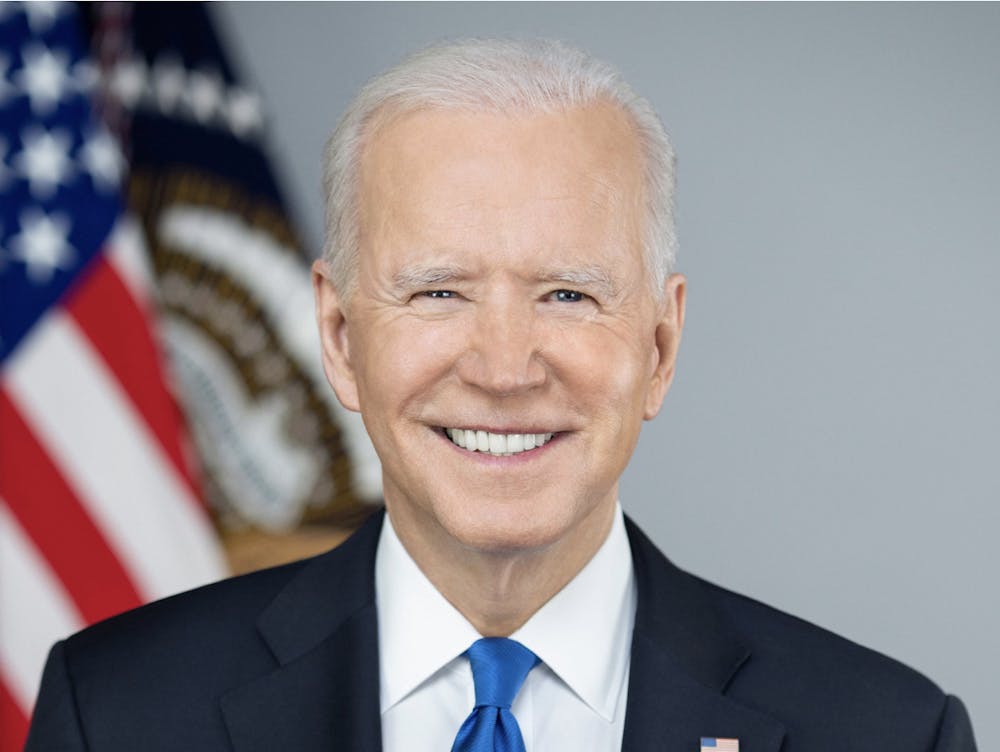By Connor Carlin
Staff Writer
In 1920, a little known senator from Ohio named Warren G. Harding made a run for President with a promise of a return to normalcy. Reeling from the upheaval of World War I, the Spanish flu pandemic and the First Red Scare, America elected him overwhelmingly, hoping to go back to the way things were before, hoping to return to normalcy. Joe Biden campaigned on a similar promise in 2020, vowing to beat Trump and get America back to work. Normalcy for Harding and Biden means two very different things, but as first years go, Harding’s was much better than the one Biden had.
This past year presented the Biden Administration with a myriad of challenges. These fall into the category of old problems, being those Biden inherited, and new problems, being those he found along the way. There are two major old problems worth mentioning: the fallout of Trump Era politics, and the ongoing coronavirus pandemic. These have intersected, as in the opposition to Biden’s vaccination policies, but Covid-19 has proven to be a stumbling block. Despite an efficient vaccine rollout, which saw over 200 million vaccinations administered, the emergence of the Delta and Omicron variants hampered the national recovery effort. On top of this, the administration’s muddled communication on the variants have made it even more difficult to return to a post-pandemic world. Unfortunately, replacing the man who, according to NPR, admitted to downplaying the virus’ severity has not been enough to stop the spread of the coronavirus.
The other old problem, also known as Trump, has been much louder in its war on Biden. Before he was even sworn in, people stormed the U.S. Capitol, convinced that the former President was being cheated out of his rightful second term, an idea fueled by Trump and sitting GOP politicians. Worse still, according to a December poll, currently 70% of the GOP still believes Biden lost the 2020 election. It’s hard to unite with people who demonstrate that they would rather overthrow the government before letting Biden succeed.
That last point flows into Biden’s biggest new problem: Congressional margins. The euphoria of finally getting Trump out made it seem that there would be a New Deal-style surge from Congress, and for the first two months, that was the case. Biden, contrary to the go-slow tone he took during the campaign, oversaw passage of the $1.9 trillion American Rescue Plan, a massive social spending package which passed with full Democratic support. Afterwards, Biden received articles saying he’d ended the Reaganite “Government is the problem” era and was heralded as the next Lyndon Johnson. Then everything started to return to normalcy.
Democrats’ taking back the Senate may have done Biden more harm than good in the long run. With a 50-50 Senate, and in an intensely polarized political climate, every vote has counted tenfold. As a result, the American public became very familiar with Senators Joe Manchin and Kyrsten Sinema, the “moderates” willing to throw away legislation if it doesn’t suit their personal tastes, which have a certain flavor of coal and prescription drugs. As soon as the pressing matter of Covid-19 relief was addressed, the moderates started finding their voice with the next project.
Infrastructure was Biden’s choice for his first major policy mission, and that was understandable from a deal-maker politician like him. Both parties agree our infrastructure is in need of repair, so it's a natural choice for bipartisan negotiation. The only problem is that, like many “bipartisan” issues, once discussions begin, Republicans remember that they’re supposed to hate whatever Democrats want, no matter what. Unfortunately, Manchin and Sinema couldn’t stand the thought of agreeing with their own party, so Biden’s gamble was to craft a bipartisan infrastructure bill focused more on traditional roads and bridges, and in exchange, the moderates would agree to a partisan bill on climate change and social policy.
Passing the bipartisan bill was a win for Biden, but it turns out you simply can’t trust Manchin, since he pulled support for the comprehensive bill in late December, killing Biden’s “human” infrastructure plan.
The hits to Biden’s approval ratings, which began high, started coming quickly as Congress went back to its favorite hobby, inaction. Then the most consequential event of Biden’s first year happened in August: the U.S.’s chaotic withdrawal from Afghanistan. This debacle was the point at which Biden’s approval rating never recovered, and his administration received harsh criticism for the execution of the plan, compounded by a suicide bombing in Kabul during the evacuation which cost nearly 200 lives, including 13 U.S. servicemen.
While we should note that the misguided withdrawal was inherited from Trump and the U.S. occupation has long been fraught with corruption, based on the Washington Post’s Afghanistan Papers, Biden still pulled the trigger and left, and his administration was blindsided by how quickly the Taliban retook the country. It was a long overdue decision, but one with grave consequences the President wasn’t able to prepare for.
These failures have contributed to worrying predictions for Biden’s party. Whereas a year ago Democrats were taking Senate seats in Georgia, by November, predictions for the 2022 midterms had all begun to say that the GOP is poised to take back Congress.
Biden’s first year was a rough one, though it had some bright spots. The American Rescue Plan was an ambitious legislative achievement, and represented the biggest expansion of social spending in a generation. Similarly, the infrastructure bill boasts many provisions that will improve the lives of millions of Americans. Besides his legislative wins, Biden also managed to appoint more judges in his first year than any President since 1981.
Despite the setbacks, these achievements aren’t nothing, and time will tell how history sees Biden. After all, Warren G. Harding may have had a better first year, but now he’s considered one of our worst Presidents.







